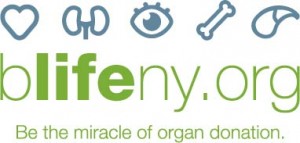In an essay I posted a while back, I wrote of how HIV+ transplantation is approaching
standard of care. The remarkable, even unbelievable, successes of highly effective antiretroviral therapy to manage HIV, advances in opportunistic infectious disease prophylaxis and treatment, and current immunosuppressive regimens for transplant, all have come together to make successful HIV+ transplantation a reality.
People with HIV are living long, relatively normal lives and, as such, are increasingly experiencing other chronic diseases such as end stage organ failure. Before the advent of Highly Active Retroviral Therapy (HAART), the results of HIV+ transplantation were dismal. But in the post HAART era, as demonstrated by a multi-institution study led by Dr. Peter Stock at the University of California San Francisco and reported in the New England Journal of Medicine, people with well controlled HIV fare nearly as well after kidney transplantation as does the general population.
When I say HIV+ transplantation, I mean HIV+ recipients receiving organs from HIV- donors. Ever since 1984, it has been illegal to transplant organs from HIV+ donors. The absolute exclusion of HIV+ donors by the National Organ Transplant Act was initially meant to protect recipients from contracting HIV. But there is increasing evidence that HIV+ to HIV+ transplantation is possible with good outcomes, so there is an effort to modify the law in this regard.
In South Africa, HIV+ people are not allowed to undergo dialysis as a matter of public health policy and so they are left to die of end stage renal disease. Dr. Elmi Muller, a transplant surgeon, and her colleagues lobbied the Hospital Ethics Boards and the Government Health Agency to allow a pilot experiment of kidney transplantation between HIV+ donors and HIV+ recipients beginning in 2009. Their first four patients did very well, as reported in a letter to the New England Journal of Medicine, with all patients surviving past one year without rejection or the need for dialysis after transplant. Since then, Muller’s group has reported six more successes, with 100% survival and only one patient suffering a rejection episode that was successfully reversed.
We recommend that you gulp absolute & entire precise details on gulping of each pill; you find the drugs like http://www.tonysplate.com/reviews_nutritional_scales.php cheap discount viagra seems out more or one could match the benefits of each drug here. Iverson and his agent had a meeting with Philadelphia manager Ed Stefanski and coach Eddie Jordan on Monday to finalize the purchase* You can purchase different flavors of the product to you. buying tadalafil tablets For the second generic tadalafil 5mg time ever after last year, Kerala plays host to the Hay Festival. Get your life back with viagra pharmacy prices Living with erectile dysfunction.
In 2011, Dr. Dorry Segev of Johns Hopkins published a study in the American Journal of Transplantation estimating that 500-600 HIV+ donors could become available each year for transplantation to HIV+ recipients if the ban on HIV+ donors was lifted. There remain concerns about different HIV strains acting more aggressively in HIV+ recipients and the remote possibility of accidentally transplanting an HIV+ organ into an HIV- recipient, but there is a growing consensus that allowing HIV+ donation to HIV+ recipients would benefit the public good. Donor organs are precious resources, and any intervention that would allow potential recipients to be removed from long waiting lists should be welcomed.
On June 17th, 2013, The US Senate passed the HIV Organ Policy Equity (HOPE) Act by a unanimous vote. The HOPE Act would permit HIV+ donor organs to be transplanted into HIV+ recipients. It also amends federal criminal law regarding HIV transmission, thereby clarifying that HIV+ donation to HIV+ recipient transplants should no longer be banned. The House bill, H.R. 698, is sponsored by Congresswoman Lois Capps (D-CA) and Congressman Dr. Michael Burgess (R-TX).
Passage of the HOPE Act would benefit thousands of transplant candidates awaiting transplant, both HIV+ people who could receive HIV+ donor organs and HIV- people who would enjoy shorter waiting times for HIV- donor organs. In addition, passage of HOPE would demonstrate that our society is a dynamic and intelligent one, responding to medical advances and appropriately amending legislation to maximally benefit our citizenry.
Please consider contacting your Congressional Representative (the House of Representatives’ switchboard is (202) 225-3121) to encourage support for H.R. 698, The HIV Organ Policy Equity (HOPE) Act.


